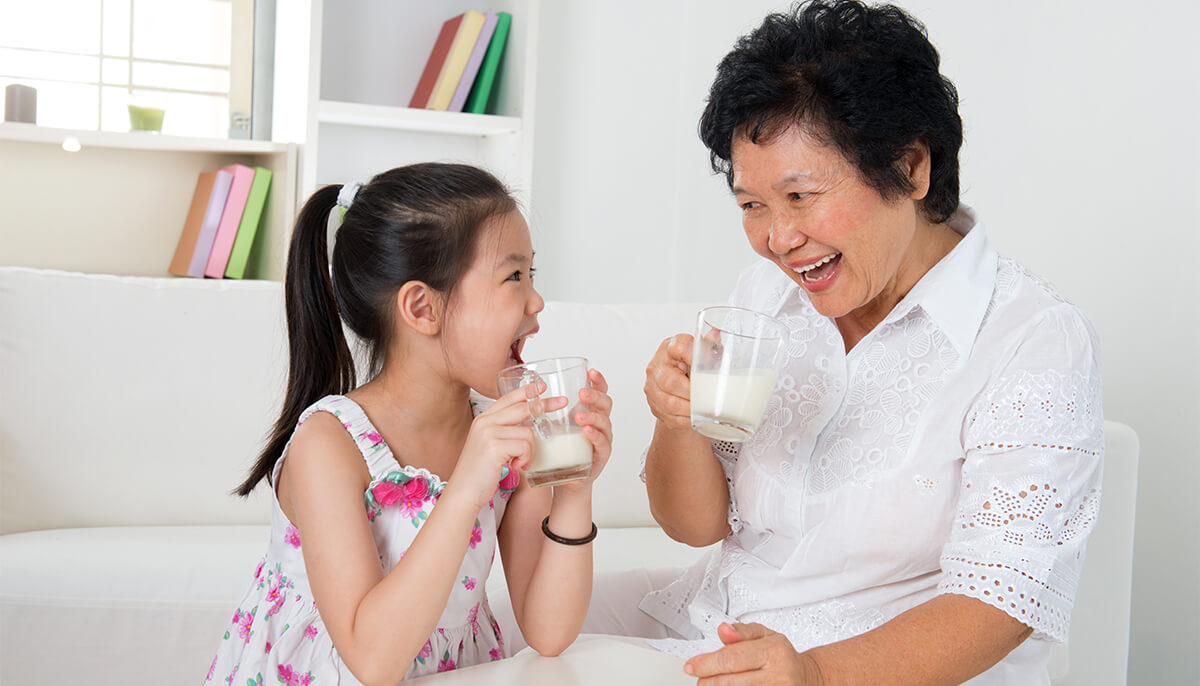Kidney stones, which are hard deposits of minerals and salts that form in the kidneys, are the reason for more than half a million emergency room visits every year. They are also increasing in prevalence. Contrary to popular belief, milk consumption does not lead to the development of kidney stones, and in fact, drinking milk is associated with lower rates of stone formation.
- Research done at Washington State University showed that people could replace apple juice with milk without increasing their risk of stone formation.
- A study in women found that those who consumed three or more servings of dairy per day had a lower risk of kidney stone formation over an eight-year period.
- Patients who consumed 1,200 mg of calcium per day, in addition to low animal protein intake, had a 51% lower incidence of recurrent stones than patients who consumed 400 mg of calcium per day.
It is important to note that while calcium from foods does not increase kidney stone risk, calcium from supplements has been associated with higher risk of stone formation. In a study of vitamin D and calcium supplementation on bone fractures in postmenopausal women, those who took supplements were found to have higher incidence of kidney stones. Thus, it is best to get calcium from food sources.
If taking supplements, total calcium intake from food plus supplements should not exceed the upper limit defined as 2,500 mg/day for ages 19–50 and 2,000 mg/day for those over age 50.
References
Kidney Stones. National Kidney Foundation website. https://www.kidney.org/atoz/content/kidneystones. Accessed September 25, 2019.
Massey LK, Kynast-Gales, SA. Substituting milk for apple juice does not increase kidney stone risk in most normocalciuric adults who form calcium oxalate stones. J Am Diet Assoc. 1998; 98(3):303–308.
Curhan GC, Willett WC, Knight EL. Dietary factors and the risk of incident kidney stones in younger women. Arch Intern Med. 2004;164(8):885–891.
Han H, Segal AM, Seifter JL et al. Nutritional management of kidney stones (nephrolithiasis). Clin Nutr Res. 2015;4(3):137–152.
Curhan GC, Willett WC, Speizer FE et al. Comparison of dietary calcium with supplemental calcium and other nutrients as factors affecting the risk for kidney stones in women. Ann Intern Med. 1997;126(7):497–504.
Jackson RD, LaCroix AZ, Gass M et al. Calcium plus vitamin D supplementation and the risk of fractures. N Engl J Med. 2006;354(7):669–683.
Dietary Reference Intakes for Calcium and Vitamin D. Washington, DC: The National Academies Press; 2011. https://doi.org/10.17226/13050. Accessed September 24, 2019.
